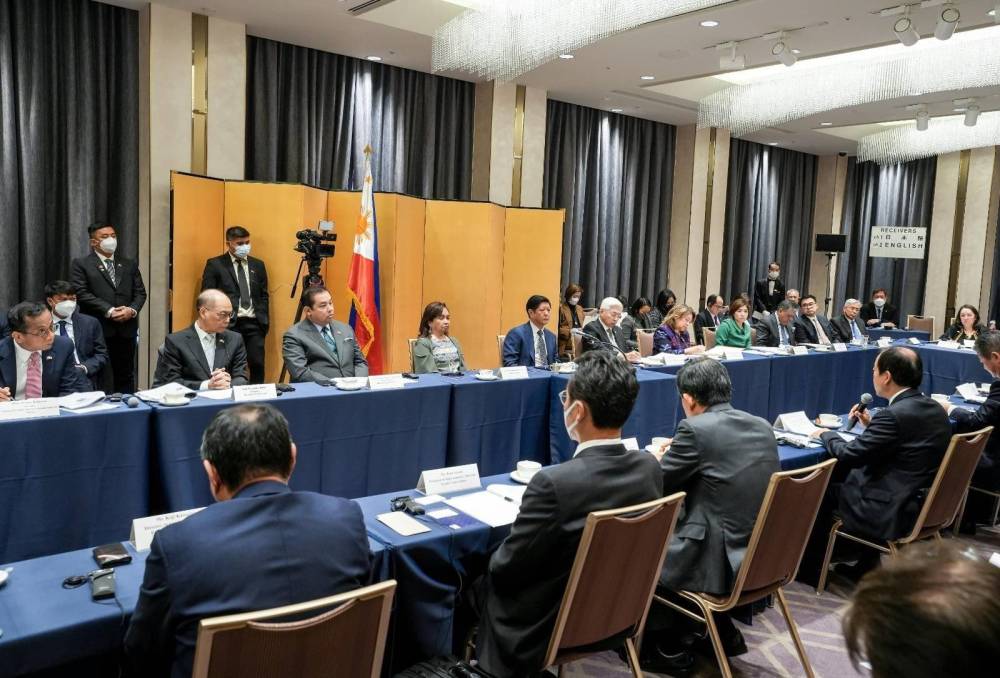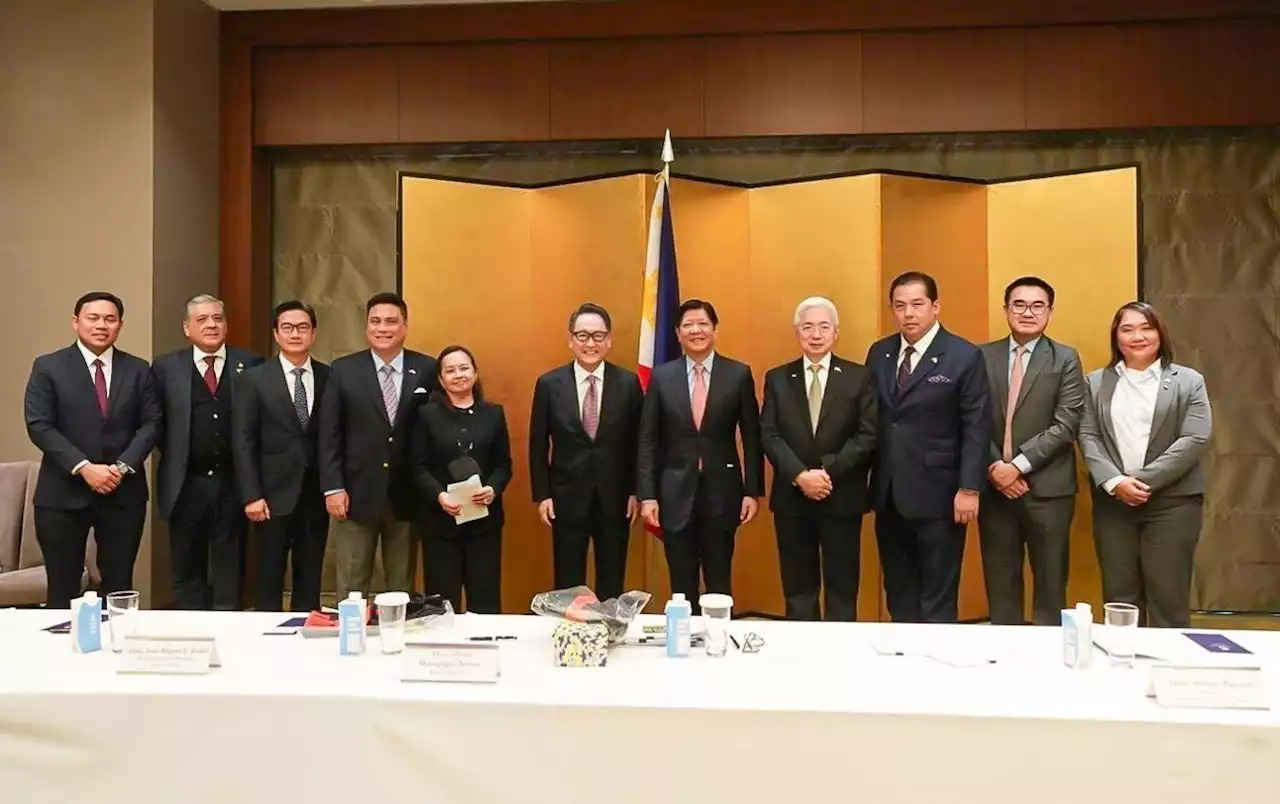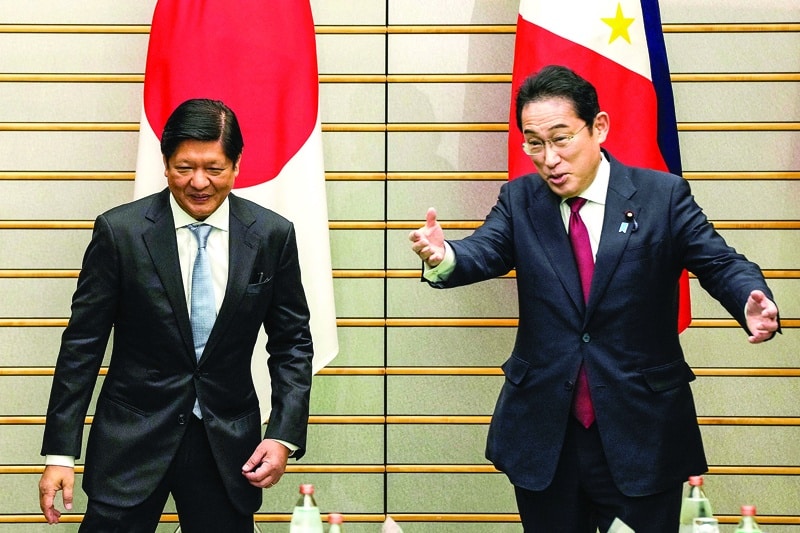In Tokyo, the Philippines has received investment commitments worth billions of pesos from Japanese companies involved in semiconductors, electronics, and wiring harnesses, with the potential to create over 10,000 employment opportunities for Filipinos. President Marcos held a meeting with representatives from Japan’s semiconductor and electronics sectors, who expressed their interest in expanding their operations in the Philippines.

The roundtable meeting was attended by high-ranking officials from various Japanese companies, including Japan Aviation Electronics Industry Ltd., Yazaki Corp., Yokowo Manufacturing of the Philippines, Sumitomo Electric Industries Ltd., Brother Industries Ltd., IBIDEN Co. Ltd., Seiko Epson Corp., NIDEC-SHIMPO Corp., and TDK Corp. The Presidential Communications Office reported that President Marcos is scheduled to unveil the aggregate investment commitment during the signing of the letters of intent by the Japanese firms later today.
During his speech, President Marcos expressed the Philippines’ ambition to become a center of excellence for sectors in which it has a natural competitive edge. He informed business leaders that the country aims to establish itself as a regional hub for electronic products such as printers and wiring harnesses. Given the shift towards electric vehicles and autonomous driving in the automotive sector, and digitalization and automation-related obstacles in the printing industry, President Marcos encouraged Japanese companies to employ more skilled Filipino workers for research and development projects.
The Philippines ranked as the world’s fourth-largest wiring harness exporter in 2021, following Mexico, China, and Romania. The country is also considered one of the world’s most affordable wiring harness producers, based on the value and volume of exports. This progress has developed over two decades, with a steady annual increase of nine percent in wiring harness exports from 2001 to 2021. The global market for automotive wiring harnesses is predicted to surpass $93 billion this year, with growing demand for fuel-efficient and electric vehicles anticipated to stimulate further growth in the future.
President Marcos pledged to Japanese investors on Thursday that his administration will enhance efforts to upskill and reskill Filipino workers, enabling them to stay competitive in the rapidly changing global economy and technological advancements. He expressed the importance of the training programs presented by the investors at the meeting, stating that the world is transitioning from traditional industrial activities to high-tech industries. President Marcos emphasized his administration’s commitment to supporting Japanese companies in the Philippines, as they are major job providers, critical support for industrial development, and creators of value through innovative manufacturing worldwide.

Tax refund and logistical problems
President Marcos also vowed to address the concerns raised by business executives regarding value-added tax refunds, logistics, and manpower requirements. He acknowledged the comments made by investors about the challenges related to VAT exemptions, supply chain logistics, and infrastructure development, stating that his administration has taken note of these concerns and has accelerated the development of infrastructure in the country. President Marcos promised to respond to these issues with a whole-of-government approach and expressed his hope that the country’s strength in these sectors would lead to greater strength in the overall industrial landscape of the Philippines, benefiting both the country and its partners and investors.
During a dinner meeting with executives from Mitsui & Co. and Metro Pacific Investments Corp. (MPIC) on Wednesday, President Marcos emphasized the need to revitalize partnerships in trade and investment that have been stagnant since the outbreak of the pandemic. In his speech, he acknowledged that the lockdowns brought about by the pandemic had put these partnerships on hold to some extent, and called for renewed efforts to revitalize them. The President was accompanied at the meeting by First Lady Liza Araneta-Marcos, Pampanga Rep. Gloria Macapagal Arroyo, Senate President Juan Miguel Zubiri, Speaker Martin Romualdez, Mitsui & Co. CEO Kenichi Hori, MPIC Chairman Manuel Pangilinan, and members of the Cabinet.
“We are optimistic that the discussions we will have in the next few days will be a driving force for the transformation of our economy,” Marcos said, looking forward to the upcoming talks during his five-day official visit to Japan. The visit aims to enhance the partnership between Manila and Tokyo in various fields, including agriculture, renewable energy, digital transformation, defense, and infrastructure. Mitsui & Co. is a Japanese company that operates in 128 offices in 63 countries, including the Philippines, primarily in product sales, logistics, financing, and other businesses, while MPIC is a Philippine-based investment management and infrastructure holding company that mainly focuses on strategic partnerships to enhance operational efficiency and increase customer coverage. Marcos’ trip to Japan is his ninth foreign trip since assuming the presidency in June 2022. The Philippines’ GDP grew by 7.6 percent in 2022, the highest in 46 years.

Restarting of projects
During an interview with reporters on board PR001 on Wednesday, Marcos discussed the ongoing efforts to finalize projects that were previously suspended due to the pandemic and to explore new opportunities, such as agribusiness investments, between the Philippines and Japan.
In particular, Marcos mentioned the potential for investment in agriculture and the opening of Japanese markets to Philippine agricultural products, highlighting the importance of the exchange of technology and the benefits of government-to-government and commercial arrangements.
According to Marcos, the Philippines has already benefited greatly from previous collaborations with Japanese funding agencies, and he expressed optimism for further cooperation through agreements such as the Japan-Philippines Economic Partnership Agreement, which is the only bilateral free trade agreement the Philippines has in place.
In 2021, Japan ranked second as the Philippines’ largest trading partner and third as its top export market, as well as its second top source of imports. Additionally, Japan has been the largest bilateral source of active official development assistance (ODA) to the Philippines, financing infrastructure and capacity building projects, social safety net programs, education, agriculture, science and technology support, and other impactful programs.
To expedite applications for jobs in Japan, where Japanese employers have expressed their desire to hire Filipino workers, the Department of Migrant Workers has opened a special desk. Migrant Workers Secretary Susan Ople, who met with Japanese employers and Filipino workers in Japan, said that Filipino workers are highly reliable, trainable, and bring a positive atmosphere to the workplace. Ople said that the Department of Migrant Workers wants to strengthen its relations with Japanese employers and the government to ensure that the Philippines is the number one source of skilled workers in Japan.
Salaries for jobs in Japan range from P54,548 for entry-level trainees to P377,640 for specialized positions and highly skilled professionals, but prospective workers must pass a language proficiency test. Ople stated that they will look into the bottlenecks and obstacles that Filipinos face and work to resolve them with Japan’s support, which has proven to be a trustworthy partner in overseas employment.







